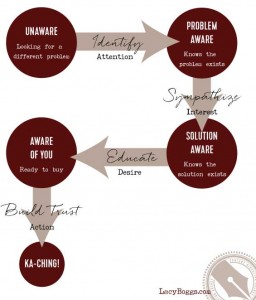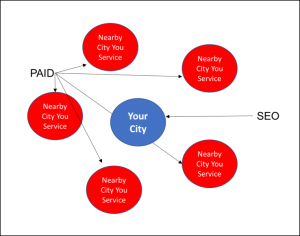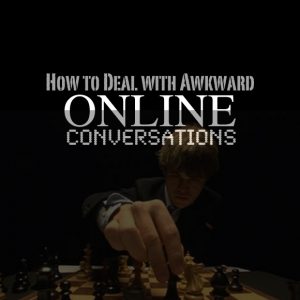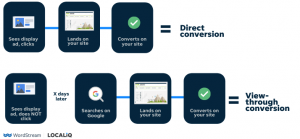— October 2, 2017

gr8effect / Pixabay
There’s a strange phrase that raises its head again and again in content marketing circles, and it’s one you’ve probably heard numerous times:
“I’m not precious about my ideas.”
As someone who regards himself as a creative thinker, there’s something a little jarring about the thought of not taking pride in one’s own concepts. Of course, the phrase is not usually uttered to demean the initial idea or its inventor, but is instead a way of attempting to demonstrate malleability. It is supposed to say, ‘Hey, valued stakeholder, let’s work together and come up with something we both like’.
You’ll be very aware of what they’re attracted to and what has the power to entice
However, as wishy-washy phrases go, this one can come across as particularly feeble. To me, it screams indecision. It practically yells ambivalence. It suggests that you’re happy throwing everything at the wall just to see what sticks. And, as a content tactic, that generally means that nothing of substance will.
As a marketer, shouldn’t you care enough about your products to be confident they’ll work? Isn’t it important to take pride in your ideas? There’s a big difference between listening to constructive criticism and succumbing at the first sign of disagreement, and staying on the right side of that line is what separates the proud from the indifferent.
To me, it screams indecision
Too precious to be mediocre
I’ve said before that it pays to be a creative mind with an adaptable mindset, and I stand by that. It’s vital to be flexible when you’re being creative, but it’s important to be precious, too. If your job is to come up with ideas and mature them into viable campaigns, then have faith in your own ability.
Not everything you produce will be gold, but if you’ve designed a concept that you’re pleased with, why would you throw it away at the first sign of disagreement? Collaborating and subsequently refining an idea is one thing, but outright submission is another. If you believe in your idea, then sometimes you’ll need to stand up and fight for it.
It’s vital to be flexible when you’re being creative, but it’s important to be precious, too
If you don’t have a passion for the ideas you’re putting forward, don’t expect anyone else to. If you don’t care, why should your target audience? If you’re good at your job – and I’m sure you are – then you’ll know what to produce to appeal to potential customers and clients. You’ll be very aware of what they’re attracted to and what has the power to entice, but also what should be avoided. That’s fundamental knowledge, so don’t be afraid to explain why your idea is the right one.
If you target your content at a particular set of audience personas, but hit them with a half-hearted or watered-down piece of work, you can hardly expect them to react with enthusiasm. If you offer ‘meh’, you’ll get ‘meh’ in return.
That precious buy-in
Of course, some degree of push back should always be expected. You can be proud of your concept while also agreeing that it isn’t perfect. Sometimes you’ll need help to smooth out those rough edges, and that’s fine. If anything, it’s nearly always beneficial to have a second pair of eyes to assess and refine. The last thing you want to do is get under your stakeholder’s skin; their thoughts are valid and must be appreciated, even if you ultimately want to encourage them to take the route you’ve set out.
If you offer ‘meh’, you’ll get ‘meh’ in return
Getting senior buy-in for creative content is critical in order to get it produced. Sometimes you’ll come up against hurdles or stumbling blocks, especially if you need to appeal to more than one person or numerous departments. By having a coherent strategy that takes into account the initial problem that required solving, and establishes why your idea is an appropriate solution, you’ll be well on the way to getting influential people to trust in your capacity to deliver.
Your precious emotions
The most powerful content evokes an emotion. Regardless of what it is you’re producing – be it a video, image, podcast or piece of writing – you want to make your audience feel something. Getting people invested in your campaign means that it’s resonating, which is exactly what you want. That, however, will always be far more difficult if you, the creator, aren’t emotionally connected.
Business & Finance Articles on Business 2 Community
(80)
Report Post







